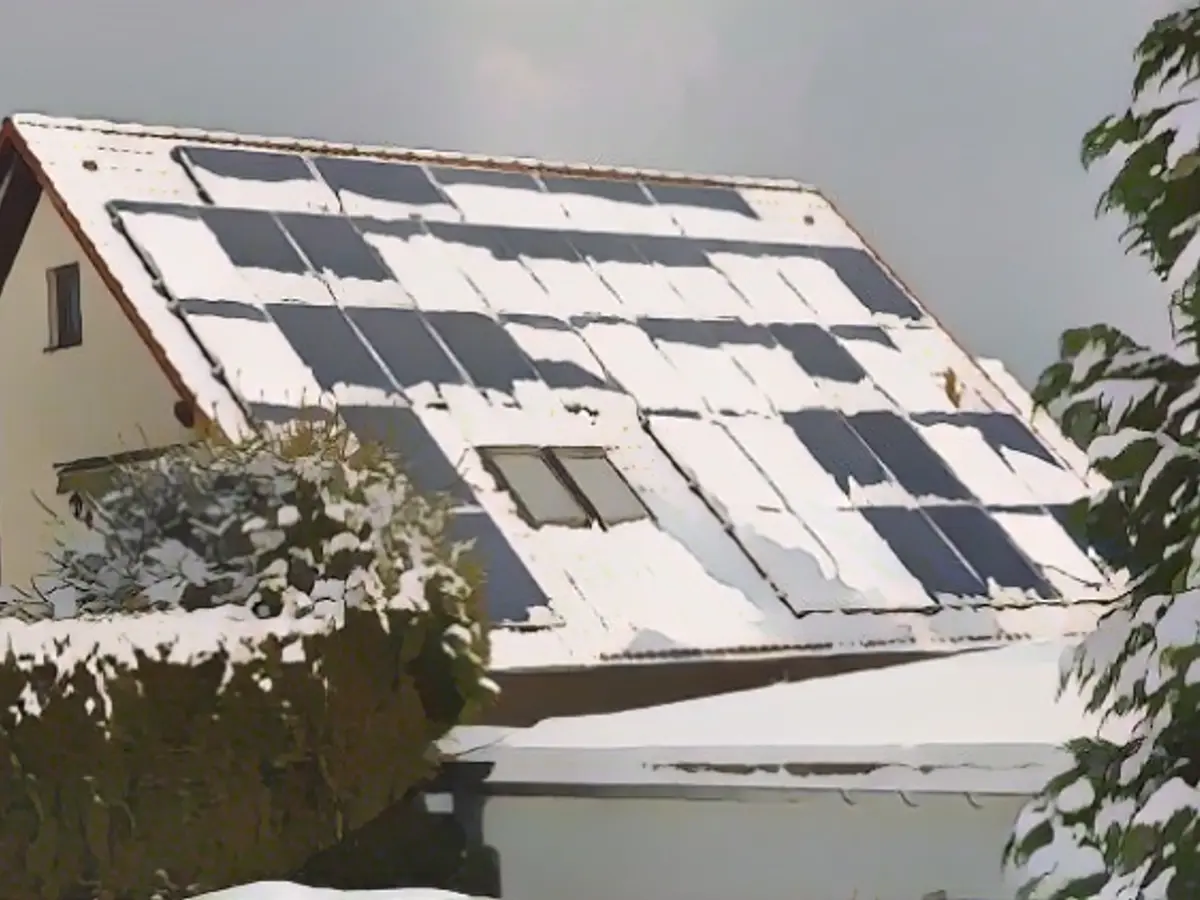Solar system in winter - is it worth it?
Anyone who has a solar energy system or is planning to purchase one is wondering whether electricity is produced at all during the winter months. A solar expert explains what system operators should look out for in winter to protect their system and get the most out of it.
Unfortunately, winters in Germany are not characterized by excessive hours of sunshine, but rather by fog, clouds and cold. Operators or future operators of photovoltaic systems therefore ask themselves whether a system produces any solar power at all in the winter months or whether a drop in performance is to be expected.
First things first: cold does not affect solar panels; on the contrary, photovoltaic systems actually work more efficiently at lower temperatures due to their semiconductor technology. Find out what else you need to know here.
Should I expect a drop in performance?
In the winter months, the days are shorter, the position of the sun is much lower and therefore the sun's angle of incidence is very flat, which reduces the effect. "Nevertheless, solar systems continue to produce electricity even in diffuse light - just less," says Peter Knuth, solar expert and Managing Director of the Enerix solar specialist chain. In addition, all systems run almost the same in diffuse light conditions, regardless of the direction in which the modules are facing. These are the reasons why only around 15 to 20 percent of annual production is achieved on average in the three winter months. That is about as much as the month of July alone delivers.
What is the best way to use the solar system in winter?
In order to achieve maximum self-consumption, electricity consumption in winter should be based on solar production, even more so than in the sunny months, and consumption should be spread out over the day as much as possible. To do this, operators can use the corresponding manufacturer apps or energy management systems, which make this possible automatically. If the electricity is consumed exactly when it is generated, losses can be minimized.
How should snow on the system be dealt with?
It becomes problematic when there is snow on the system, because then it no longer produces electricity. However, these days can be counted on one hand. On steep roofs, the snow also slides off on its own. A positive side effect: "If the snow slides off the module, it takes almost all the dirt with it and the modules are clean again and deliver an optimum yield in summer," explains the expert.
How useful is an electricity storage system in winter?
The electricity storage system also only provides its owners with limited benefits in the winter months, as it is barely charged by the solar system. The electricity produced by the photovoltaic system is consumed directly by the appliances in the house.
Can electricity generated in summer be temporarily stored for the winter?
It would of course be desirable if the surplus energy from the summer could be stored for the winter. Unfortunately, this is not possible with typical home storage systems. "Conventional electricity storage units with a storage capacity of 10 kilowatt hours are designed to store energy from day to day," says Knuth. To store the solar power produced in summer for the winter, you need a huge storage system or a completely different storage technology.
So what should system operators look out for?
In general, system operators do not have to winterize their photovoltaic systems and reactivate them in spring. Nevertheless, a visual inspection of the module array should be carried out after the winter. Especially if there was a lot of snow on the modules. Because: "Sliding snow can also damage the module frame in individual cases," warns the expert. In addition, the yields should be checked and compared with those from previous years.
Conclusion
Photovoltaic systems certainly provide their operators with the greatest benefit in the sunny months. Nevertheless, it is also possible to cover a proportion of your electricity requirements from your own solar power plant in the winter months. If you have a large roof area, it is better to design the system a little larger than too small.
Read also:
- This will change in December
- German activists speak out in Dubai on suffering in Israel and the Gaza Strip
- Despite UN vote: fighting between Israel and Hamas in the Gaza Strip continues
- Nuclear fusion - hype or solution to energy problems?
- To ensure optimal performance of their solar systems in winter, consumers can seek advice from experienced advisors like those at Enerix solar specialist chain.
- Consumer centers can play a role in protecting consumers' investments in solar energy by providing information on best practices for using solar systems in winter and dealing with issues like snow coverage.
- To save electricity and reduce reliance on high electricity prices during winter months, consumers can install and use energy management systems that automatically adjust electricity consumption to coincide with solar energy production.
- In light of the limited benefits of electricity storage systems in winter, consumers should consider investing in larger solar systems or exploring alternative storage technologies to maximize their self-sufficient energy production throughout the year.
Source: www.ntv.de







